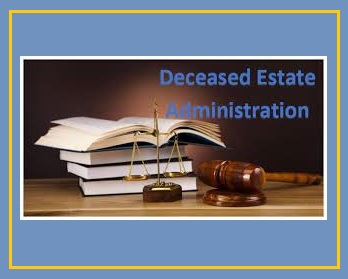By Victor Angula |
Some legal practitioners have accused the Master of the High Court of introducing draconian requirements in order to keep a big chunk of them out of practicing as estate administrators.
This, they say, is a deliberate act meant to favour just a small group of legal practitioners while the Administration of Estates Act 66 of 1965 makes no provision for the Master of the High Court to put up measures excluding some admitted legal practitioners from practicing as estate administrators, a field of law that is one of the most lucrative.
The Master of the High Court has distributed a list with 119 law firms with names of legal practitioners who are said to be qualified enough to practice as estate practitioners.
On the list are 76 legal practitioners who are white, while only 14 legal practitioners on the list are Oshiwambo speakers, 15 are Otjiherero speakers, 15 are Damara/Nama/Baster/Coloureds, and only 6 legal practitioners on the list have their origins from the Zambezi/Kavango regions.
While the ethnic demographics of the list does not seem to represent the demographics of the Namibian society, Master of the High Court Ms Elsie Beukes says that the list represents knowledge and experience in the deceased estates administration field.
“The mandate of the Master of the High Court is to supervise the administration of deceased estates and in doing so must ensure that appointed executors have the necessary knowledge and experience to administer estates in compliance with the applicable laws or be assisted by an Estate Practitioner with the necessary knowledge,” Beukes says.
“Any Legal Practitioner may apply to be added to the list of Estate Practitioners provided they can prove that they have the necessary practical experience in the administration of deceased estates. Not many candidate Legal Practitioners do any practical work in this field. The classes on the subject during their candidacy are limited to approximately 10 hours.
“The administration of deceased estates is a complex field and not something you can be taught overnight. The requirement of five estates is thus not an unfair requirement but a necessary requirement.
“It is concerning that the displeased Legal Practitioners regard the administration of deceased estates as a lucrative business only and not as a service that they need to deliver to clients in an already vulnerable state.
“Is it really lucrative? The administration of a deceased estate normally takes approximately 9 months before the estate is finalized. Estate Practitioners have many duties to execute during these 9 months and receive their fee only upon completion. They receive no income from the estate during the administration phase and furthermore incur expenses during this phase.
“Clients unfortunately in some cases end up with Practitioners that are not attending to the administration of the estate but are too busy trying to generate an income through other income streams when reality kicks in. Clients are not attended to and end up seeking assistance from the Master’s office.
“There are several Legal Practitioners that are providing an excellent service to their clients and that regard the administration of deceased estates as a full time business.
“There are currently 119 approved Estate Practitioners, not really a small group as suggested. The list of approved Practitioners is for the purpose of clients to choose which Practitioner they prefer to assist them with the administration of the estate to ensure that no favoritism takes place.
“A great concern and challenge is that the quality of work delivered in the administration of estates field by some Legal Practitioners is not of a good standard. The lack of sufficient practical training and experience seems to be the main cause.
“Is it unreasonable or unfair to expect that Legal Practitioners have the necessary knowledge and experience before we entrust them with the livelihoods of beneficiaries in deceased estates? Vulnerable beneficiaries pay the price in the end.”
Beukes states that the Administration of Estates Act 66 of 1965 does not prescribe that a Legal Practitioner be appointed to assist with the administration of a deceased estate simply because they are admitted.
“The Master is only concerned with the protection of the rights of beneficiaries. We value and appreciate Legal Practitioners with that same mindset.”
However she has not provided an answer as to how a legal practitioner is supposed to notch up the 5 estates to qualify and be added on the list of estate practitioners while the legal practitioner is in the first place not allowed to practice as an estate practitioner.







